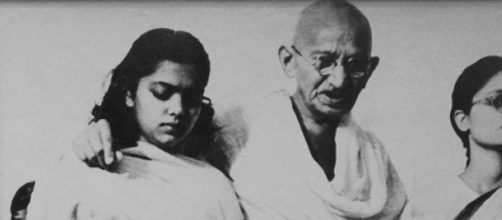A controversial and outspoken Indian judge has sensationally made the claim that Mahatma Gandhi, the spiritual leader who played a major part in India becoming independent from British rule, was in fact a British spy in his opinion. Justice Markandey Katju made his assertion based on his belief that Gandhi spoke with reference to the Hindu religion in his political addresses, with the result that he acted to divide the country's Hindu and Muslim followers, which assisted the British in their overriding policy of 'divide and rule', as the two would not pool their strength from a unified stance.
Katju is not unknown for making outlandish comments (especially regarding Indian freedom), so there are many who will probably dismiss his claims, but he does have quite a large following, with almost 100,000 'likes' for his Facebook page alone. Social media is not always the best place to make one's personal views known, given that there is often a difficulty in being able to adequately explain the reasoning, without the great danger of upsetting those who take comments at face value. So, to use a personal blog to make such a strong assertion seems particularly odd. He is well aware, however that his blog will probably have been seen by many thousands of people, such is its popularity.
The 68-year-old, former chairman of the Press Council of India, was maybe slightly unwise to state on the blog that "Gandhi was objectively a British agent who did great harm to India." He further fuelled the potential outrage of a nation by asking in separate posts whether Gandhi should "deserve to be called the Father of the Nation?" and with reference to some of the content from Gandhi's speeches, he referred to what in his view were "stupid, feudal ideas."
He was speaking on the matter at a particularly interesting time, just prior to the new statue of Gandhi being unveiled in Parliament Square in London, near to the Houses of Parliament.
The bronze will sit alongside the figures of other prominent world leaders, such as Winston Churchill and Nelson Mandela, after public donations for the statue raised more than £1 million. 2015 marks the 100th year since Gandhi's return to India from South Africa, at which point he began his non-violent campaign of civil disobedience in order to ultimately achieve India's independence from British rule.
India's independence was granted in 1947, with the British Indian Empire being divided into two 'dominions', comprised of the Hindu-majority India and the essentially Muslim Pakistan. With many Hindus, Muslims and Sikhs having to move to their new land, examples of religious violence resulted. Gandhi forewent the independence celebrations to instead visit the troubled areas.
In the following months, he made attempts to bridge the differences by undertaking several 'fasts unto death'. The last of the fasts had the indirect impact of applying pressure on India to make good on payments owed to Pakistan, which was not well thought of by some at the time. Gandhi was assassinated shortly afterwards, when he was shot dead by a Hindu nationalist.
The Foreign Secretary Philip Hammond is flying to Delhi to meet with Arun Jaitley at present, with India's finance minister then due to travel to London for the unveiling of the new Gandhi statue. With the talks between the two countries imminent, David Cameron said only last month that "Mahatma Gandhi is an inspiration," as the news about the statue was confirmed.
He had further stated that he expected the statue to "enrich the firm bond of friendship between the world's oldest democracy and its largest."
Katju is clearly not one to bite his tongue when he feels strongly about a subject, having once told The Times that "90 percent of Indians are idiots", in relation to their voting habits not judging the candidates on their political virtues, but instead considering their religion and caste when making their decision.

